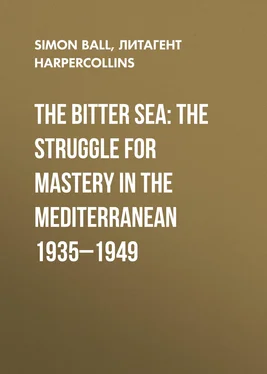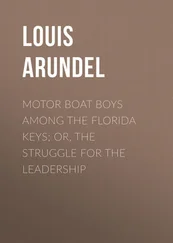1 ...7 8 9 11 12 13 ...30 Darlan’s plan was a difficult concept to sell to his own countrymen, let alone the British. Most French army and air-force officers were fixated on the defence of France’s land frontiers, not ambitious naval operations far from home. Until the spring of 1939 the official position of the defence establishment was in favour of an alliance with Mussolini rather than for a war against him. 3 As the most enthusiastic military supporter of a campaign in the eastern Mediterranean, Maxime Weygand, put it: ‘if one’s range of vision were limited to distant horizons, one ran the risk of being like La Fontaine’s astrologer who, walking with his eyes fixed on the stars, fell into a well’. 4 Why couldn’t they see, Darlan demanded, that a war was coming in which France and Britain would be pitched against Germany, Italy, Japan and, he feared, Spain? That war would not be won by cowering behind the Maginot Line. War was about grand strategy, it was won by attack rather than defence and, Darlan maintained, the Mediterranean was the key to both. A great coalition war would not be a short affair. It would be a long struggle decided by which side was the most successful in mobilizing its resources. He argued that ‘a significant part of British and French supplies and, in particular, almost all the oil extracted from the French, British and Russian oil fields in the East depends on the mastery of the Mediterranean’. More importantly still, the Mediterranean offered the avenue by which Germany and Italy could be outflanked. Now, ‘above all,’ Darlan observed, ‘the Mediterranean constitutes the only communication line with our Central European allies’. The pivot of such a line would be the city of Salonika in north-east Greece. 5
Allied to his grand vision Darlan possessed a formidable talent for short-term political manipulation. Unable to convince the stolid military types, he appealed to worried politicians peering uncertainly into l’âbime. Rather nervously they agreed to consider his ideas. The political elite was far from endorsing Darlan’s scheme but they did allow him to insert the possibility of a Mediterranean war into the machinery of planning. 6
As ever it was Mussolini who transformed a dry debate about future possibilities into a pressing necessity for action. 7 At the end of November 1938, Mussolini ordered Ciano to terrify France. The Italian foreign minister presented himself in the Chamber of Deputies to espouse the ‘natural aspirations’ of the Italian nation. In response, the Deputies and those in the galleries erupted in chants of ‘Tunisia, Corsica, Nice, Savoy’. These chants, if taken literally, reflected a series of territorial demands that would have made Italy the dominant power in the western Mediterranean, not to mention dismembering metropolitan and colonial France. To agree to these demands would have finished France as a serious power and provoked an internal revolution. Even the hardiest of French appeasers found it impossible to imagine how a compromise might be reached if Ciano’s audience was a genuine sounding board for Italian ambitions–and Ciano affected to believe that he had ‘expressed their aspirations, which are those of the nation’. 8
One possible response was Nelsonian deafness. ‘According to some accounts,’ the British ambassador Lord Perth reported to London, the prolonged acclamations for Ciano, ‘included cries of “Tunis, Tunis”, though they were not distinguishable from the Diplomatic Gallery where I was seated.’ 9 Even the Fascist stage-managers appeared a little confused as to what they should be demanding. The gallery claque were supposed to cry for Tunis and Corsica, but not only was Nice added for good measure but a few enthusiastic souls shouted a demand for Morocco as well. 10 Mussolini told the Fascist Grand Council, swearing them to secrecy, that his actual programme was to seize Albania and ‘then, for our security needs in the Mediterranean which still constrains us, we need Tunis and Corsica’. 11 Even the Duce acknowledged that plans to dismember metropolitan France were unrealistic. Mussolini’s real aim, he told Ciano, was to sow confusion in preparation for the invasion of Albania. The furore would ‘distract local attention, allowing us a convenient preparation without stirring up any fear, and in the end induce the French to accept our going into Tirana.’ 12
Within a few days even Mussolini was moved to admit that they might have overdone it, since ‘continuing at this rate cannon will have to be put to use and the time has not yet arrived’. 13 The damage, however, had already been done. 14 The French had no mean intelligence service working against the Italians: it was conservatively estimated that France had over one thousand agents in Italy by the late 1930s. The contents of Mussolini’s ‘March to the Oceans’ found their way into French hands. Darlan’s warnings about the inevitability of war against a German-Italian Axis were, even his detractors in the French army were moved to admit, appearing more and more prescient by the day. The French Prime Minister, Edouard Daladier, made a highly publicized trip to Tunis in January 1939 to emphasize French willingness to fight for its Mediterranean possessions. He approved extra spending to prepare Tunisia against Italian attack. 15
Darlan was by no means finished with his manoeuvres. German and Italian bellicosity had finally convinced the appeasement-minded governments of Chamberlain and Daladier that their respective armed forces should be allowed to talk to one another. Darlan hoped to use these talks as a means of achieving his long-term goal of levering France into the eastern Mediterranean. In the short term he intended to use the British to clear away the objections of his colleagues. He found a willing ally in his British opposite number, the newly appointed First Sea Lord, Sir Roger Backhouse. Backhouse, too, was trying to overcome what he regarded as pusillanimous diplomatic appeasers in an attempt to get to grips with Mussolini. If anything he was even more aggressive than Darlan and advocated going straight for the Italian mainland. In the autumn of 1938 he had commissioned his chief planner, the grandiloquently named Sir Reginald Plunkett-Ernle-Erle-Drax, to start work on that basis. The French found Drax’s plans rather strong meat.
Italian naval planners had also worked themselves into a lather, if not of aggression, at least of bellicosity. The planners pointed out that an unexpected surprise attack on the British, preceding the outbreak of a general war, might be the best way to achieve their goal. If no such ‘knockout blow’ was forthcoming then the Italians would wait until they had assembled a big enough army in Libya. The army would then advance eastwards towards Egypt and the Suez Canal to ‘to defeat the main enemy at a vital point and open one of the doors that close Italy off from free access to the oceans’. 16 The navy did, however, add one important caveat to these ambitious plans. Although the ‘system of defence’ that would divide the Mediterranean was plausible, and could be erected in fairly short order, the deployment of the main battlefleet was more problematic. There were only two harbours capable of handling the most modern battleships, both of them historic hangovers more suited for the coastal operations of an earlier age. Genoa was too exposed to attack. Indeed both Darlan and Backhouse had identified it as one of their first targets for naval bombardment. Venice and the Adriatic seaboard were too far from the central Mediterranean. The answer to this problem was a new naval base at Taranto in the far south of the Italian mainland; but it was not due to come into full operation before 1942.
The perceived caution of the naval planners prompted derision from the other services. Mutual inter-service mud-slinging offered an opportunity for Marshal Badoglio, the Chief of Supreme General Staff, who, for all his prestige, was usually kept away from real decision-making, to intervene. 17 Badoglio thought that the war talk was dangerous nonsense. Mussolini’s rhetoric, he assured the military chiefs, was just that. He himself had talked to Mussolini. He had assured Badoglio that Ciano’s speech and his own statements to the Fascist Grand Council were merely a blind for the limited operation in Albania. Badoglio’s timing was poor. On the day that the chiefs met, news arrived in Rome that Barcelona had fallen; victory in Spain, Mussolini said, bore only one name, his own. He had persevered when nay-sayers such as Badoglio had despaired. Mussolini always delighted in making the Marshal appear cowardly and foolish. The very next day the Duce contradicted his most distinguished soldier and declared that he was indeed intending to ‘wage war and defeat France destroying everything and levelling many cities’. 18
Читать дальше












